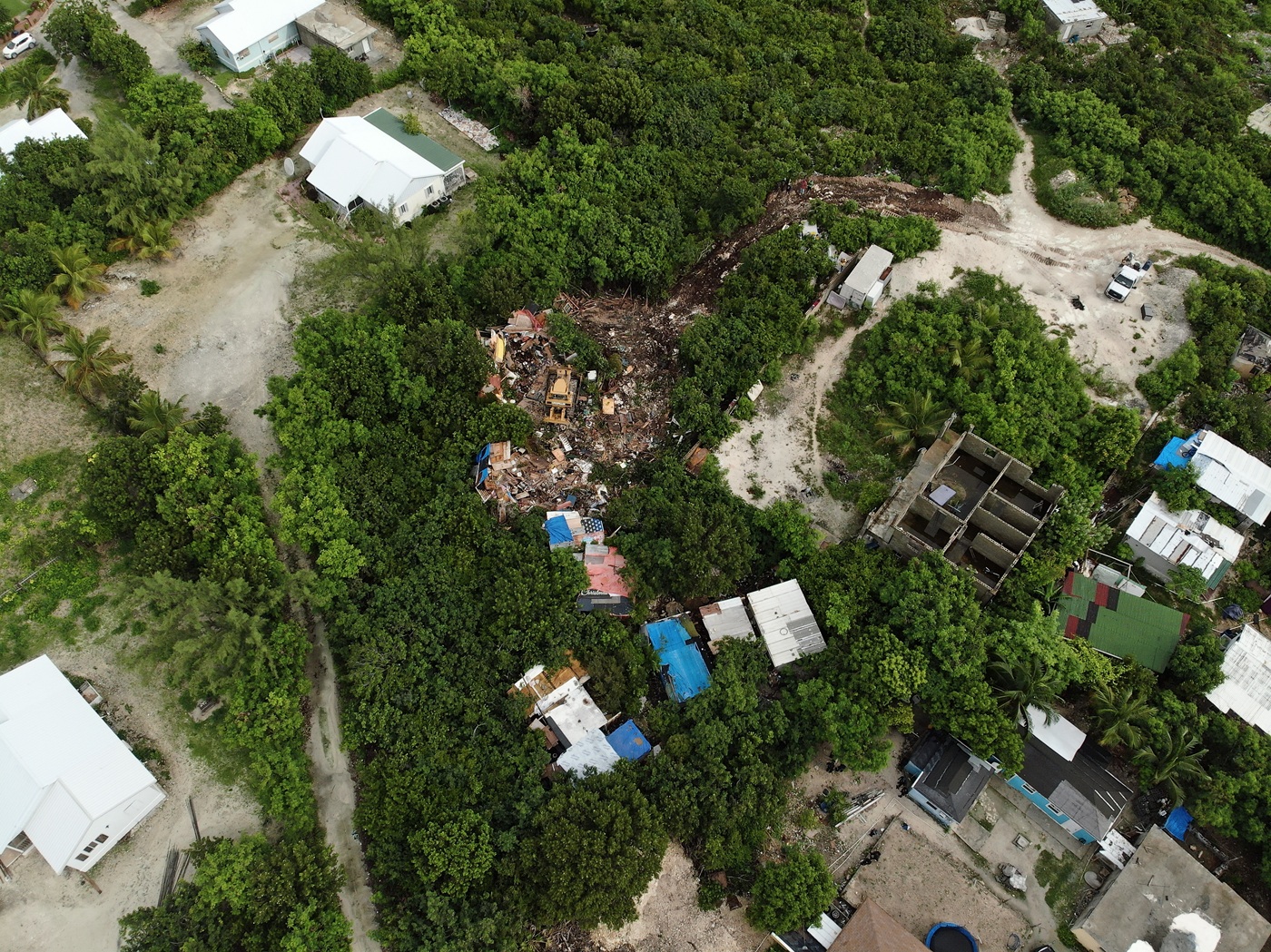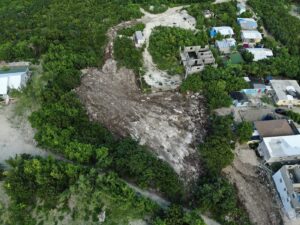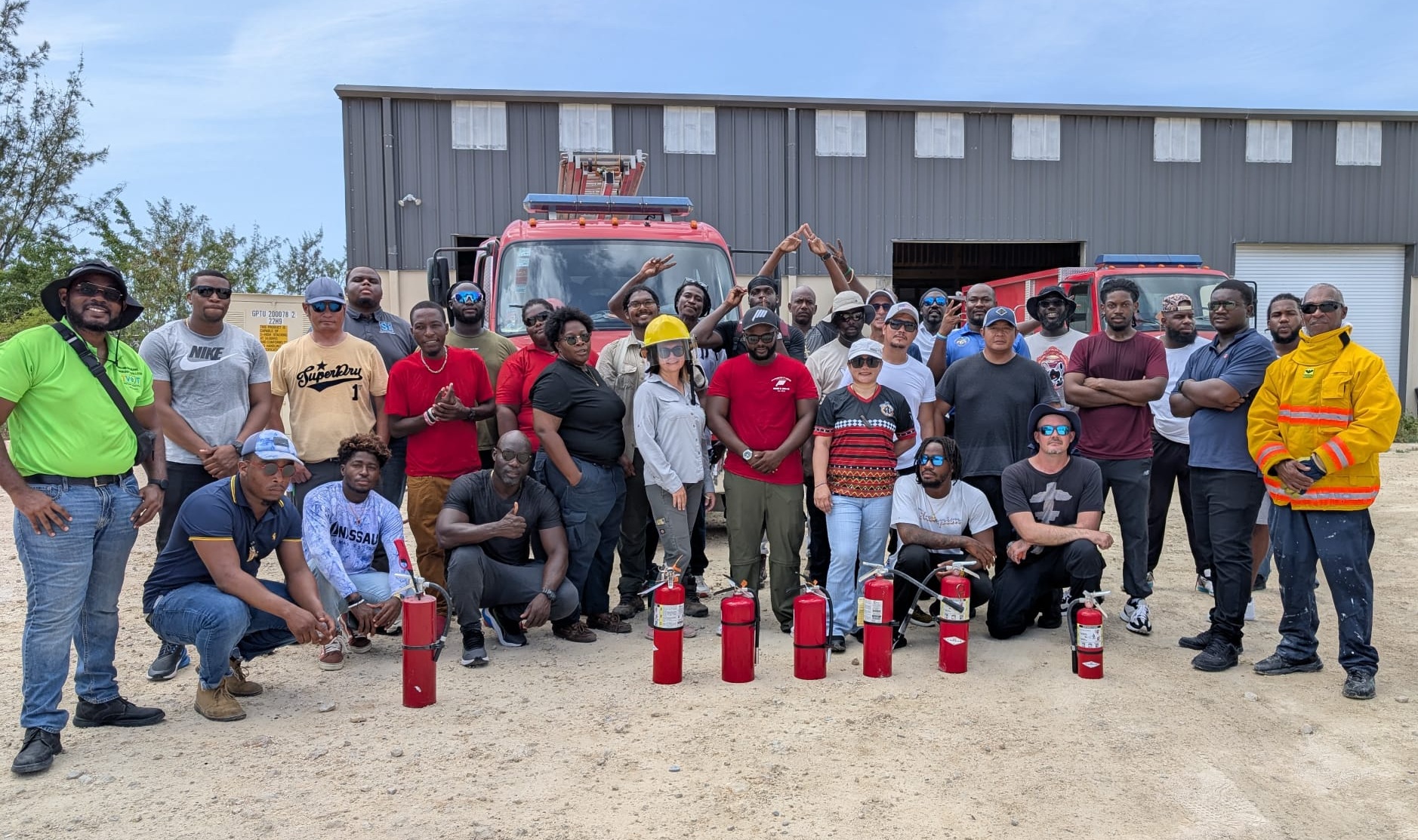Providenciales, Turks and Caicos Islands – Wednesday, 27 August 2025: In a significant step toward strengthening maritime safety and professional standards in the Turks and Caicos Islands, the Department of Maritime Affairs (Ministry of Tourism), in partnership with the Turks and Caicos Islands Community College (TCICC) TVET Department and the LJM Maritime Academy – Nassau, Bahamas, successfully delivered the Standards of Training, Certification and Watchkeeping for Seafarers (STCW) training to fifty-nine (59) mariners.
Of this number, forty-nine (49) participants received their first certification, while ten (10) completed re-certification, ensuring that the TCI continues to expand its pool of trained and globally recognised maritime professionals.
The Minister of Education, Youth, Sports and Culture, Honourable Rachel Taylor, commended the initiative while congratulating the participants, noting: The Minister of Education, Youth, Sports and Culture, Honourable Rachel Taylor, commended the initiative while congratulating the participants, noting:
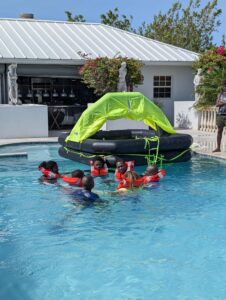
Personal Survival Techniques Training
“Today we celebrate not only the certification of fifty-nine men and women, but also the strengthening of our nation’s human capital. This milestone affirms that our investment in Technical and Vocational Education and Training (TVET) is yielding results, creating real opportunities for our people in high-demand global industries. STCW certification ensures that Turks and Caicos Islanders are not only employable, but also competitive on the world stage, equipped with skills that meet the highest international maritime standards. I am particularly proud that this training was delivered here at home, reducing barriers to access and affirming our commitment to expanding local capacity in alignment with the Blue Economy. To our graduates, I charge you to use this certification as a launchpad whether in tourism, fisheries, environmental management, or private enterprise and to represent the Turks and Caicos Islands with professionalism, discipline, and excellence.”
This training represents the Government’s continued commitment to aligning with global maritime conventions and advancing the Turks and Caicos Islands’ Blue Economy through the development of skilled local capacity. Participants represented a wide cross-section of both public and private entities, including the Turks and Caicos Ports Authority, Department of Maritime and Shipping, Marine Police Branch, Amanyara Resort, Beaches Resort, Southbank, Department of Environmental and Coastal Resources, Department of Fisheries and Marine Resource Management, and several private charter companies.
Honourable Zhavargo Jolly, Minister of Tourism, Agriculture, Fisheries, Heritage and the Environment, echoed Minister Taylor’s sentiments, adding: “This milestone speaks to the direction we are taking as a country. By equipping our people with internationally recognised STCW certification, we are strengthening maritime safety standards, while more importantly opening doors for Turks and Caicos Islanders to take their place in the global maritime economy. Whether starting their own marine based businesses or serving on private yachts within our own ports, this training ensures our people are prepared, competitive, and respected at the highest levels.
I want to commend the Department of Maritime and Shipping, the TCICC team, and our partners at the LJM Maritime Academy for making this opportunity possible here at home. Most importantly, I congratulate the 59 mariners who have completed this training. You are pioneers of the new blue economy we are building, and your success sends a powerful signal: Turks and Caicos Islanders are ready to lead, not only locally but internationally.”
Through this specialised programme, participants gained critical instruction in the following core areas of STCW Basic Training:
- Personal Survival Techniques (PST) – STCW Code A-VI/1-1
- Fire Prevention and Fire Fighting (FPFF) – STCW Code A-VI/1-2
- Elementary First Aid (EFA) – STCW Code A-VI/1-3
- Personal Safety and Social Responsibilities (PSSR) – STCW Code A-VI/1-4
- Proficiency in Security Awareness
Established by the International Maritime Organisation (IMO), the STCW Convention sets global benchmarks for the training and certification of seafarers. It ensures that all personnel working on ships are equipped with the knowledge and skills required to operate safely, respond effectively to emergencies, and carry out their duties in accordance with international maritime standards.
In this context, the initiative aligns directly with the Turks and Caicos Islands’ national maritime development strategy, supporting the growth of a robust and compliant maritime industry, expanding employment opportunities for local seafarers, and enhancing the country’s reputation as a responsible, safety-conscious jurisdiction.
The training was conducted at the TCICC Campus from Tuesday, 19 August to Saturday, 23 August 2025, under the leadership of the LJM Maritime Academy, Nassau, Bahamas, with instruction provided by Captain Clayton Delaney and Mr. Kermit Turnquest (Chief Petty Officer, Royal Bahamas Defense Force).
Chairman of the Board of Governors of TCICC, Mrs. Sheba Wilson, commended the team for the successful execution of the course, stating, “The inaugural STCW training exemplifies TCICC’s unwavering commitment to aligning education with the needs of our nation. By certifying 59 participants, we are not only strengthening workforce readiness but also empowering our people to uphold the standard of excellence that continues to define the Turks and Caicos Islands as a premier tourism destination.”
“The inaugural STCW training exemplifies TCICC’s unwavering commitment to aligning education with the needs of our nation. By certifying 59 participants, we are not only strengthening workforce readiness but also empowering our people to uphold the standard of excellence that continues to define the Turks and Caicos Islands as a premier tourism destination.”
In remarks delivered on her behalf, Dr. Candice Williams, President of TCICC, highlighted the broader significance of this milestone:
“You join a growing network of skilled professionals ready to elevate maritime standards, drive responsible operations, and lead with integrity on every horizon, shore and sea. This certification opens doors to diverse, high-impact roles and sets a powerful example for others to follow.
The TCICC President also issued a charge to participants, “As you celebrate this milestone, seize every chance to deepen your skills, pursue additional credentials, and contribute to a thriving and sustainable blue economy. The Turks and Caicos Islands Community College is committed to supporting your journey every mile along your blue-economy journey.”
The Department of Maritime and Shipping and the Turks and Caicos Islands Community College (TCICC) expressed satisfaction with the training’s outcome, proudly noting a 100% pass rate among participants. This achievement reinforces confidence that the newly certified mariners will continue to represent the Turks and Caicos Islands with distinction, professionalism, and the highest maritime standards. The STCW certification initiative signals a new era for Technical and Vocational Education and Training (TVET) in the Islands, creating pathways for young people and professionals to gain globally recognised skills without leaving the country.
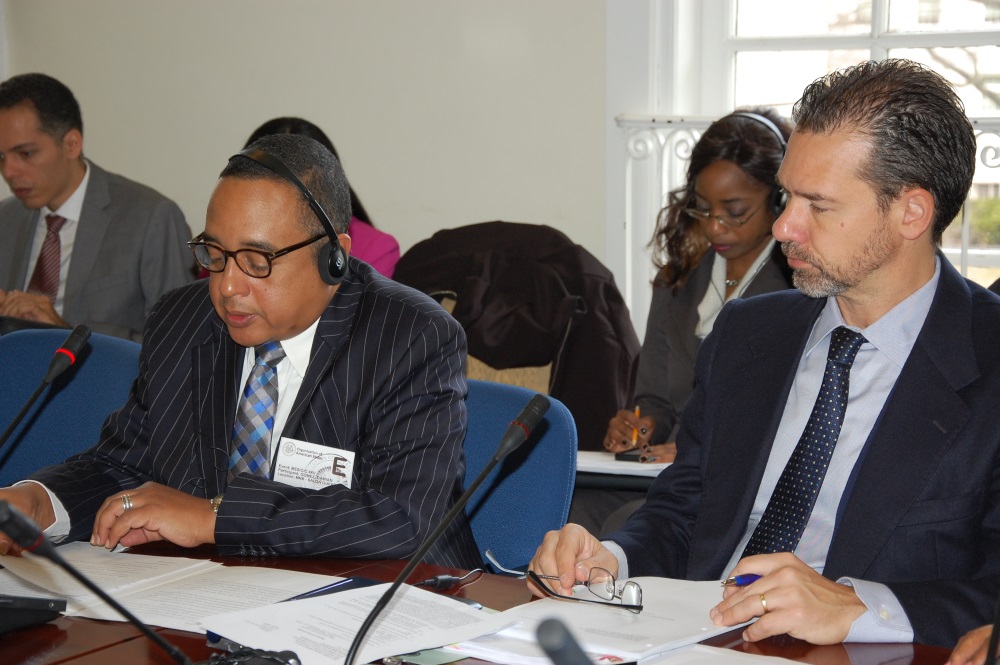

 News6 days ago
News6 days ago
 Caribbean News1 week ago
Caribbean News1 week ago
 News6 days ago
News6 days ago
